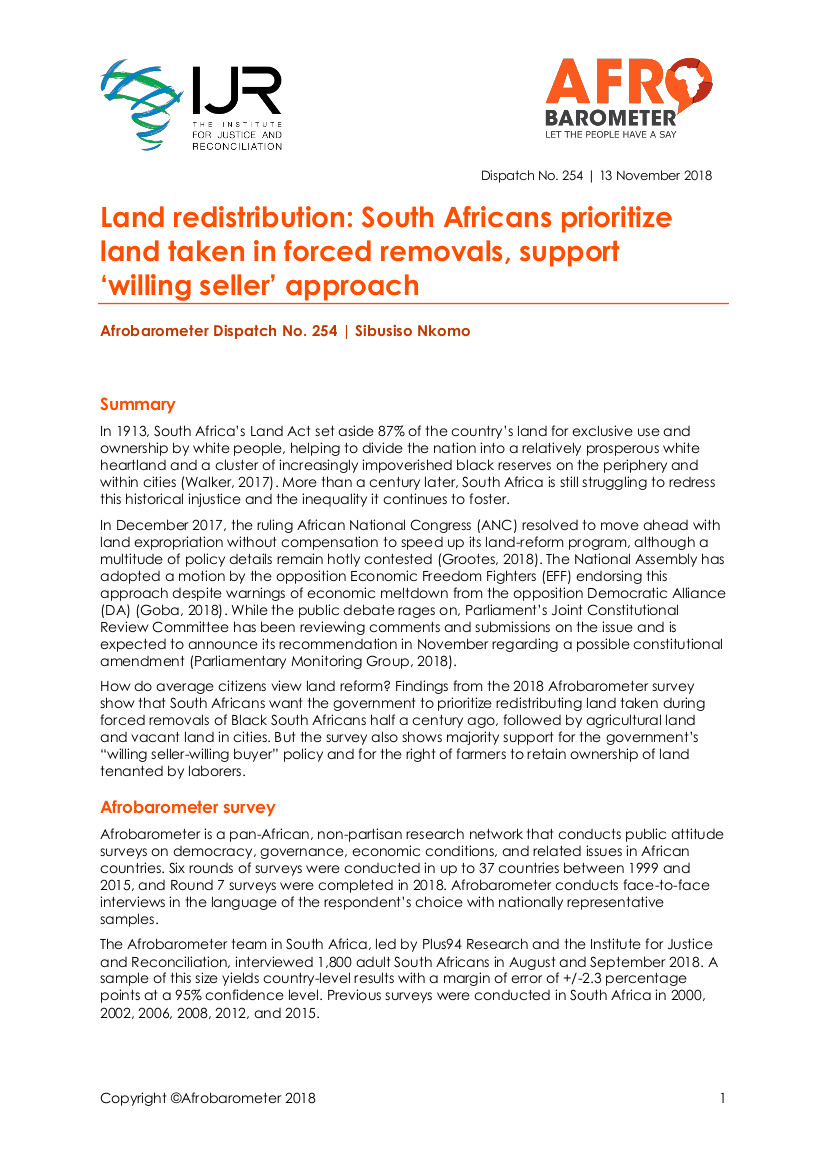Resource information
In 1913, South Africa’s Land Act set aside 87% of the country’s land for exclusive use and ownership by white people, helping to divide the nation into a relatively prosperous white heartland and a cluster of increasingly impoverished black reserves on the periphery and within cities (Walker, 2017). More than a century later, South Africa is still struggling to redress this historical injustice and the inequality it continues to foster.
In December 2017, the ruling African National Congress (ANC) resolved to move ahead with land expropriation without compensation to speed up its land-reform program, although a multitude of policy details remain hotly contested (Grootes, 2018). The National Assembly has adopted a motion by the opposition Economic Freedom Fighters (EFF) endorsing this approach despite warnings of economic meltdown from the opposition Democratic Alliance (DA) (Goba, 2018). While the public debate rages on, Parliament’s Joint Constitutional Review Committee has been reviewing comments and submissions on the issue and is expected to announce its recommendation in November regarding a possible constitutional amendment (Parliamentary Monitoring Group, 2018).
How do average citizens view land reform? Findings from the 2018 Afrobarometer survey show that South Africans want the government to prioritize redistributing land taken during forced removals of Black South Africans half a century ago, followed by agricultural land and vacant land in cities. But the survey also shows majority support for the government’s “willing seller-willing buyer” policy and for the right of farmers to retain ownership of land tenanted by laborers.

